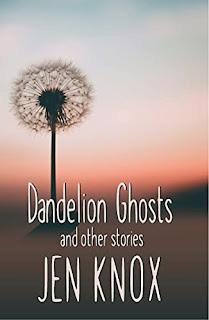I make mistakes all the time. I am a mistake machine. If you read this blog regularly, you likely know this. I am revising my posts all the time after catching a missing or extra comma, a misspelled word, or a logic error. At one time, I told myself that if things were different (see above), I would appear as flawless as I imagine the best, most notable authors are. But after 15+ years of writing seriously and reading voraciously, I can honestly say that all of the above statements are untrue and flawless writing without help is impossible. Sure, I might be more productive with more time; but blunders, typos and logic errors will always be there to trip me or give me a reality check when I feel full of myself.
I have been thinking about the pang that comes after finding errors in my work, especially older work, a lot lately. I have been thinking about it because I notice it doesn't bother me so much anymore. After all, when I am at work as an editor, I don't think twice when another person makes an error. Instead, I think, well, that's because this person is human, and I move on. If there are excessive errors, I might think the person didn't put much into the work, but a few errors are inevitable. In fact, over the years I've been writing, I have found the more I read published (big press and small press) books, the less alone I feel in my flaws. Even classics sometimes are printed with errors--logic, typo and other--despite the fact that thousands have read these books.
I'm not writing this post to tell you that there's not value in revision, editing, and polishing every manuscript until it is as error-free as possible, but I am saying that if you write and you miss something, don't beat yourself up. Just write more, revise if you can, move onward and forward.
As a teacher, I notice that some of the best storytellers in my class are the hardest critics when it comes to their own writing. If they let something slip, they think they're not cut out for writing or not up to the task. You don't understand, Professor Knox, I looked this over twenty times and never saw that typo. Something must be wrong with me. I must not be cut out for this.
Not true. In fact, quite the opposite tends to be true.
I am writing this post expressly to tell writers out there to do the best they can and never beat themselves up. In fact, if you're a real writer, a writer who is true to your own voice, willing to show your flaws and, more, examine them, you're on a good track. It is those who care, who are humbled by flaws and continue to move forward, who will last in this business. And let's face it, everyone wants to be a writer, but few folks stick with it.
Writing is not easy, and it is not always rewarding in the ways we think it will be. But writing is freedom unlike any other I know, and it will pay you back for your time if you stick with it. Perfect writing, in my opinion, is a myth. Strong writing is not. Strong writing that tells a story is writing that moves its readers. Strong sentences make the reader want to continue on.
Write, rewrite, and revise. But keep telling your stories at the risk of making errors. See each error as an opportunity for growth. If you are a good storyteller, I want to read your work, but I never will if you're too busy trying to be perfect. So, if you're like me and have second guessed yourself a lot, please stop. Think about the following:
1. A strong sentence is a sentence that makes the reader want to continue to read.
2. Mistakes are lessons, and lessons are gifts. Examine them.
3. Those who tell you about your errors are helping you, whether or not you think that is their intention. Thank them.
Failure after long perseverance is much grander than never to have a striving good enough to be called a failure.
Failure after long perseverance is much grander than never to have a striving good enough to be called a failure.
Read more at http://www.brainyquote.com/quotes/keywords/perseverance.html#jDjLl1JkQu2xi5HG.99
Read more at http://www.brainyquote.com/quotes/keywords/perseverance.html#jDjLl1JkQu2xi5HG.99
Failure after long perseverance is much grander than never to have a striving good enough to be called a failure.
Read more at http://www.brainyquote.com/quotes/keywords/perseverance.html#jDjLl1JkQu2xi5HG.99
Read more at http://www.brainyquote.com/quotes/keywords/perseverance.html#jDjLl1JkQu2xi5HG.99
Failure after long perseverance is much grander than never to have a striving good enough to be called a failure.
Read more at http://www.brainyquote.com/quotes/quotes/g/georgeelio388825.html#ASVrK8TXwK6IgZ7W.99
Read more at http://www.brainyquote.com/quotes/quotes/g/georgeelio388825.html#ASVrK8TXwK6IgZ7W.99
Failure after long perseverance is much grander than never to have a striving good enough to be called a failure.
Read more at http://www.brainyquote.com/quotes/quotes/g/georgeelio388825.html#ASVrK8TXwK6IgZ7W.99
Read more at http://www.brainyquote.com/quotes/quotes/g/georgeelio388825.html#ASVrK8TXwK6IgZ7W.99




No comments:
Post a Comment